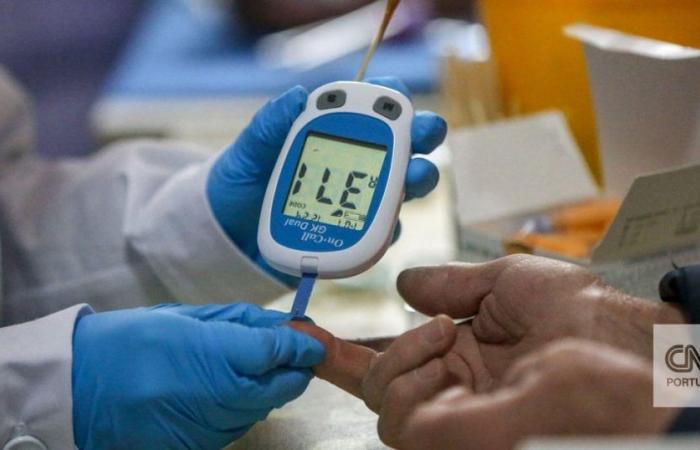
In 2022, 1,518 cases of tuberculosis were recorded
Portugal maintained the progressive reduction in tuberculosis cases in 2022, totaling 1,518, but still remains one of the European countries with the highest incidence of the disease, reveals a report from the Directorate-General for Health (DGS).
Of the 1,518 cases reported, 1,403 were new cases and 115 retreatments, corresponding to a notification rate of 14.5 cases per 100 thousand inhabitants and an incidence rate of 13.4 cases per 100 thousand inhabitants, according to the Surveillance and Monitoring Report of Tuberculosis in Portugal 2022, which is presented today at the meeting promoted by the DGS “Tuberculosis: a current disease” to mark World Tuberculosis Day, which is celebrated on March 24th.
Despite the reduction that has been consistent over the last six years, “Portugal remains one of the European countries with an incidence above 10 cases per 100 thousand inhabitants”, highlights the document published by the National Tuberculosis Program (PNT) of the DGS.
Speaking to the Lusa agency, the director of the PNT, Isabel Carvalho, stated that cases are not “reducing as quickly” as desired to achieve the objectives that the World Health Organization (WHO) proposes by 2035 of reducing cases by 95%. tuberculosis deaths and 90% incidence rate, using 2015 as base values.
“Despite everything (…) from 2015 to 2022, we managed to have a reduction of around 31% and 30.7% in the incidence of the disease in Portugal and a 43% reduction in deaths caused by tuberculosis, which gives a percentage decrease annual rate of around 4% in relation to incidence and around 6% in relation to mortality”, but, he stressed, “the ideal” would be a “more pronounced decrease, close to 5.6%” per year.
Men continue to be more affected than women (65.7% of total cases reported in 2022), especially in adulthood, the document notes, adding that 3.3% of total cases occurred in children and adolescents up to at 15 years old.
That year, 91 deaths from tuberculosis were recorded, which corresponds to a fatality rate of 8.6% in all cases.
Regarding the distribution of cases reported across the seven regions of the country, the predominance of Lisbon and Vale do Tejo and Norte continued.
“Between 2021 and 2022, in the Lisbon and Tagus Valley region there was an increase in the notification rate from 16.8 to 17.8 cases per 100 thousand inhabitants, while in the North region a decrease was identified from 17.5 to 15.8 per 100 thousand inhabitants”, highlights the document.
The authors of the report point to the increase in the number of cases in the Lisbon district (495 in 2022 against 440 in 2021) as an explanation for the increase in the notification rate in Lisbon and Vale do Tejo, values similar to those in 2020 (more than 20 cases per 100,000 inhabitants).
The Porto district showed a slight decrease in reported cases (376 in 2022; 384 in 2021), corresponding to a notification rate of 20.7 cases per 100,000 inhabitants.
The number of days until diagnosis remained high in 2022 (82 days), although less than in 2021 (86 days), a decline that Isabel Carvalho argued should be more pronounced.
The person in charge explained that healthcare professionals take around 12 days to make a diagnosis, but this only happens when the patient enters healthcare.
“Until then, it takes the patient an average of 40 days to seek help”, which can happen because they have barriers or are unaware of how to access healthcare, in the case of immigrants, or because the patient does not value the symptoms.
Isabel Carvalho added that in countries with a low incidence of cases the “negative consequence” is that tuberculosis is no longer thought of, “sometimes mistakenly considering that the disease has been eradicated in Portugal”.
“It is not [erradicada em Portugal]is not eradicated in the world and, therefore, we have to be more alert and continue talking about tuberculosis, because the disease actually exists”, he stressed, maintaining: “There are fewer cases, but it is a disease that is very transmissible, especially when We are adults and we have pulmonary forms of the disease.”
He warned about the situation of children and people who are immunosuppressed, with reduced defenses, “who with a short period of exposure could become infected, sometimes even unaware that the chance contact they had had tuberculosis”.
Tags: Portugal maintains reduction European countries incidence cases tuberculosis thousand inhabitants
--




